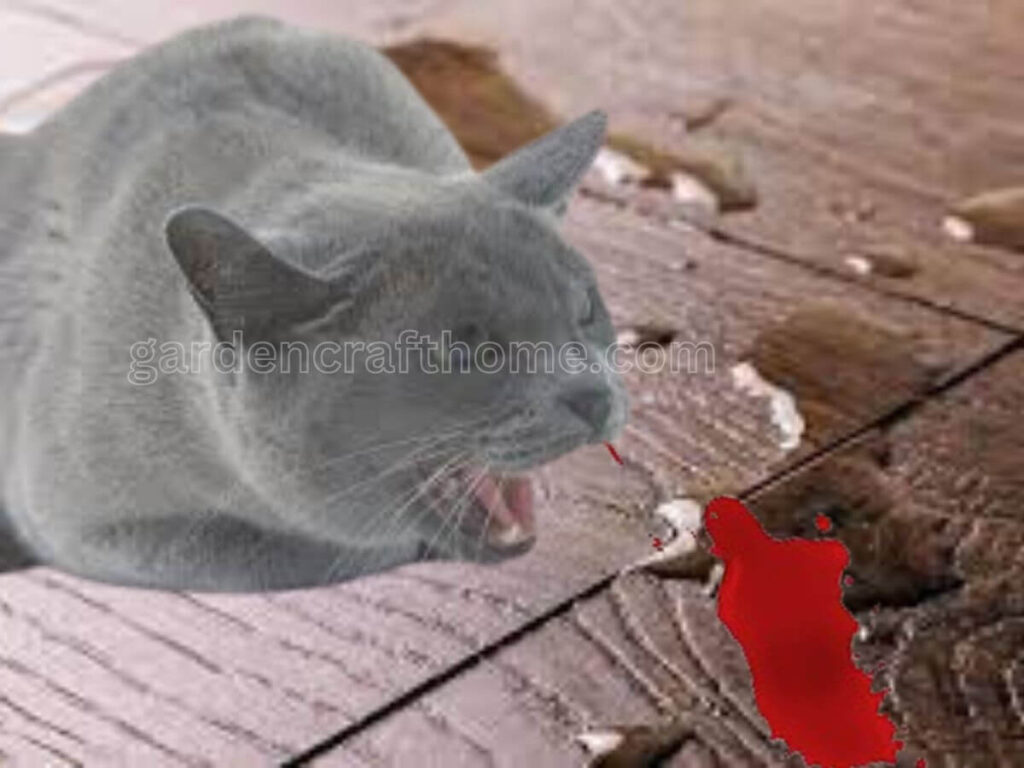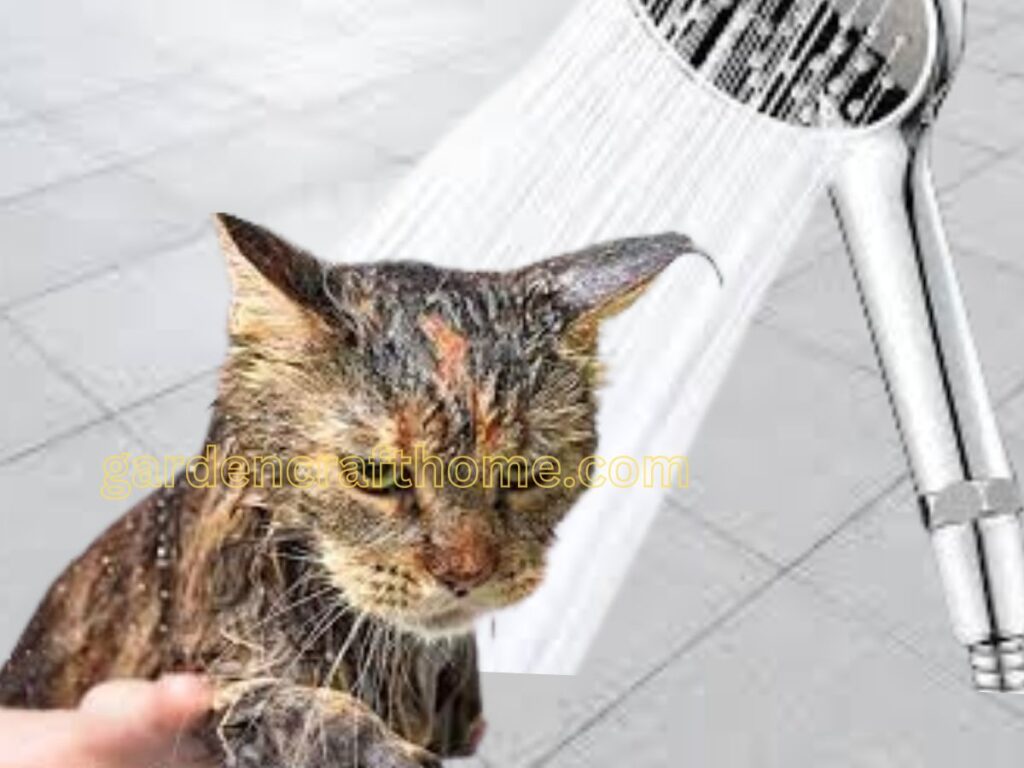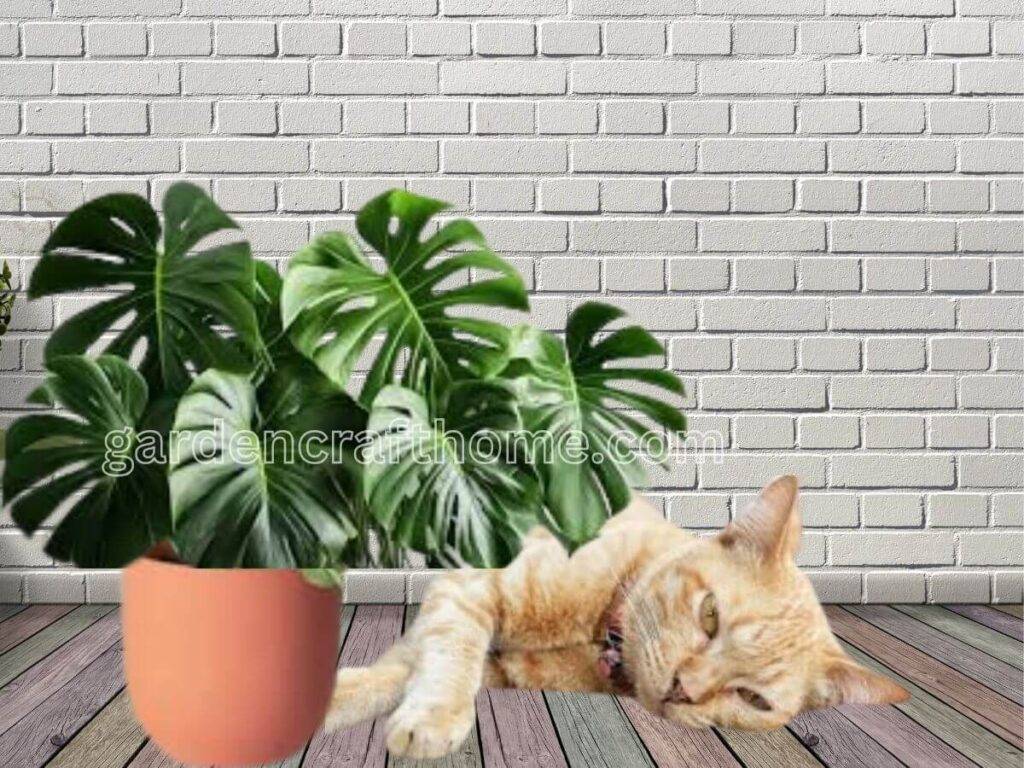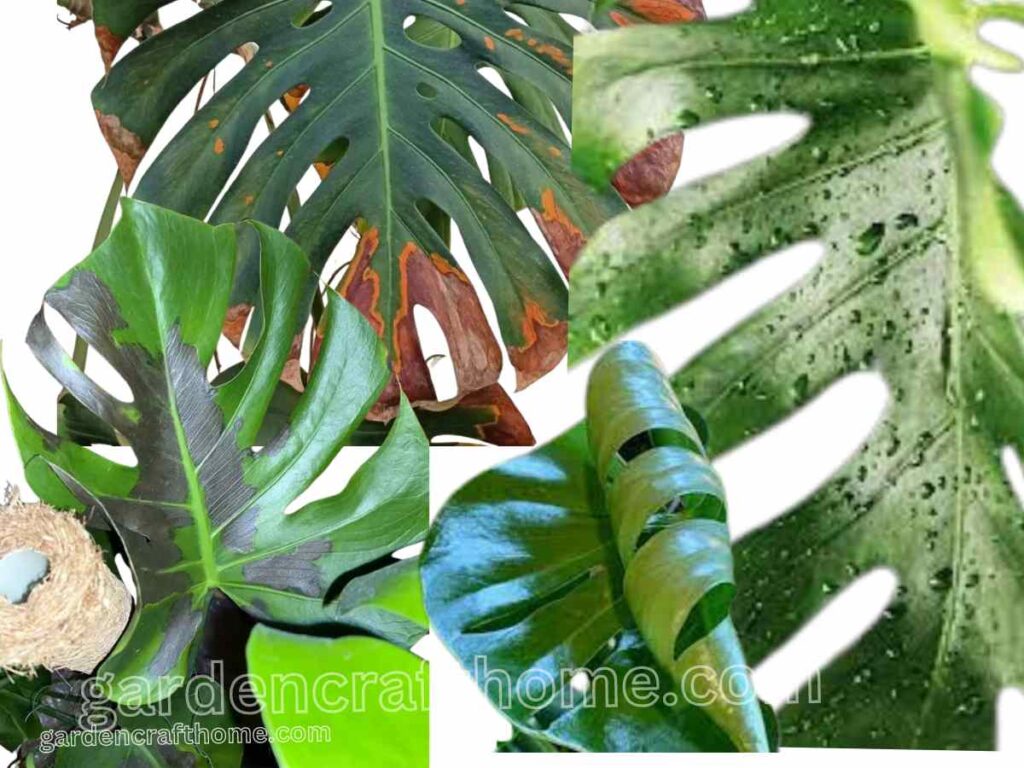Are monsters toxic to cats, of course? Yes, philodendron monstera is toxic to cats if injected, and the toxicity level depends on how much your Cat has eaten.
I almost lost my 3-year-old Cat because of its curiosity about monsters. Still, finally, I restored him with my veterinary knowledge.
After the incident, I took detailed information on giving my cat and dog the required first aid if such happened.
I will also show you how to treat and prevent cats from being poisoned by Monstera and how they could become poisoned. Let us dive in.
Are you interested in dogs? Click here to read how Monstera is poisonous to dogs and how to keep them. [ Link ]
Monstera Overview
Araceae is a family of around 450 species, including the lovely houseplant Philodendron Pertusum, often known as Monstera Deliciosa or Swiss cheese plant.
These plants are native to tropical America and provide magnificent foliage and beauty in their natural environment as climbers and epiphytes.
This variation is distinguished from other species by its unique traits and needs for maintenance.
Philodendron Pertusum needs a particular atmosphere to grow well indoors.
They prefer mild to warm weather and temperatures between 65 and 75 degrees Fahrenheit.
They can tolerate greater temperatures, but you must provide the best circumstances for steady development.
Several significant factors influence the general upkeep of Philodendron Pertusum:
Light: Strong indirect light is necessary to keep their vivid look.
Water: Moderate and regular irrigation is required to keep the soil partly damp but not drenched.
Support: To prevent falling, they need vertical support, such as moss poles or bamboo sticks, since they are innate climbers.
If interested, click here to learn How to Make a Moss Pole for Monstera.
Or click here to learn how to stake Monstera with bamboo.
Being aware of the possible toxicity of Philodendron Pertusum is crucial to its management.
Not only are these plants poisonous to dogs and horses, but they are also hazardous to cats.
Because of the insoluble calcium oxalates that induce mouth, tongue, and lip swelling,
excessive drooling, vomiting, and trouble swallowing, this substance is poisonous. Keeping Philodendron Pertusum out of the reach of pets is crucial for their protection.
Is Monstera Toxic To Cats?
Cats are said to be poisoned by Monstera plants. If cats consume Monstera, the insoluble calcium oxalate crystals found in these common houseplants, it may irritate and discomfort them.
Oral discomfort, drooling, vomiting, and trouble swallowing in cats are signs of Monstera poisoning.
Cat owners must understand the hazards of owning Monstera plants in their homes.
Get veterinarian help immediately if you think your Cat may have eaten any part of a Monstera plant or is displaying strange symptoms.
Consider selecting non-toxic, cat-friendly houseplants to provide a secure space for your plants and four-legged companions.
To reduce the chance of ingesting poisonous plants, ensure they are out of your Cat’s reach and monitor how they behave around houseplants.
If interested, to learn how snake plants are poisonous to cats and dogs click here.
Understanding Monstera Toxicity To Cat
Monstera Deliciosa, a popular houseplant, is known for its unique divided leaves and lush foliage.
While it adds beauty to any interior space, it is essential to understand the potential toxicity of this plant concerning our feline companions.
Monstera Toxic Compounds
The primary toxic substance found in Monstera delicious is calcium oxalate crystals. These insoluble compounds are also present in other plants that irritate when ingested.
In addition to calcium oxalate crystals found in Monstera sap, ingesting these crystals can cause an unfavorable experience for cats prone to biting or chewing plants.
Plants are classified with class 3 and 4 toxicity levels.
While class 1 plants are the most toxic, class 2 plants can cause mild illnesses such as vomiting and diarrhea.
Considering the potential risks when introducing a Monstera plant to a home with cats is essential.
Effects Of Monstera Toxicity On Cats
When a cat comes into contact with Monstera leaves and ingests any portion of the plant, it may experience mild to moderate symptoms due to the toxicity of the plant.
Some common symptoms include:
- Increased saliva production
- Redness and swelling in and around the mouth.
- Vomiting
- Difficulty to swallow
- Swelling of the esophagus
Fortunately, Monstera’s delicious toxicity is relatively mild, and symptoms usually disappear within a few days.
However, it is essential to monitor the condition of a cat that has ingested any part of the plant, as complications may arise in some cases.
If your Cat shows signs of distress or symptoms worsen, do not hesitate to seek immediate veterinary care.
What are the symptoms of Monstera poisoning in cats?
When a cat has ingested Monstera Deliciosa, it is essential to quickly identify the symptoms to take the necessary measures to ensure its well-being.
Symptoms can be classified into three main groups: oral, physical, and behavioral.
Insoluble calcium oxalate crystals are the most harmful parts, and they may give cats a variety of symptoms.
A cat that Monstera poisons may exhibit symptoms like:
- Oral irritation
- Pain and swelling of the mouth, tongue, and lips.
- excessive drooling
- Vomiting (not applicable to horses)
- Difficulty to swallow
Oral Symptoms
Cats that have consumed Monstera leaves may exhibit several oral symptoms. These symptoms include:
- Excessive drooling
- Burning sensation in the lips, tongue, and mouth.
- Irritation of the mouth, lips, tongue, and throat.
- Kicking in his mouth
- Difficulty to swallow
Cat drooling might become foamy and choking if it has consumed many of the plant’s leaves.
Physical Symptoms
In addition to oral symptoms, physical symptoms may manifest in the Cat’s general appearance and behavior, such as:

- Vomiting
- Diarrhea
- Hibernation
- Weakness
- increased heart rate
- Tremors
- labored breathing
- pale gums
- Lack of coordination
Behavioral Symptoms
Behavioral changes can also help identify if the Cat has ingested Monstera. These changes may include:
- hyperactivity
- Depression
- Increased thirst
- Loss of appetite
- Heavy breathing or wheezing
- Cough, cough, or sneeze
By recognizing these symptoms early on, you will be better equipped to help your Cat and take appropriate steps to ensure their safety and recovery.
How Long Does Monstera Toxicity Last In Cat
After ingesting philodendron pertuzumab, a cat’s length of time to become poisonous may vary based on several variables, including the following;
The Cat’s size, overall health, and the number of plants ingested. This plant is often mild to moderately poisonous to cats.
The majority of symptoms might be uncomfortable and unpleasant. Still, in extreme situations, gastrointestinal problems and mouth pain can lead to dehydration.
It is important to monitor your Cat’s health and, if required, seek veterinarian care.
As soon as possible, contact your local veterinarian or the APCC at (888) 426-4435 if you think your pet may have consumed anything potentially hazardous.
Prompt action will help guarantee your Cat heals quickly from philodendron pertusum poisoning and lessen its symptoms.
if you are interested to learn how Monstera is poisonous to dogs Click here. [link]
What To Do If A Cat Eats Monstera Plant [Immediate First Aid Treatment And Actions]
If your Cat has consumed Monstera, taking Immediate Action before seeking veterinary help is important.
Remove The Piece Of Monstera From The Cat Mouth
It would be best to take immediate action as soon as you notice that your Cat has consumed Monstera Deliciosa.
Start by removing any visible plant material from the Cat’s mouth, teeth, and fur. Be careful not to cause injury or stress to the Cat while doing this.
It will also be helpful if you use a piece of fabric to clean the toxic Philodendron Pertusum from the mouth of the Cat.
Collecting a sample of the Monstera plant may also be helpful for reference.
Having this sample can help your veterinarian identify the specific plant and determine the appropriate treatment.
Bathed The Cat With Warm Water

Give your Cat a soapy beat to eat body temperature and reduce eye Turns.
If possible, wash your Cat’s mouth to prevent further toxicity of a Philodendron Pertusum.
After betting, allow the cats to sit without disturbance. You can separate them from the rest of the cats so they won’t stress it’s a loot.
Provide Antibiotics
Provide your Cat with antibiotic medicine to prevent the reaction of the poison, but always seek medical advice before choosing the medicine.
There are general antibiotics for cats and dogs that we have to treat the symptoms of Philodendron Pertusum, which is toxic to cats.
If you know any antibiotics that will work well for general problems, give them immediately.
Disclaimer: I am not a veterinarian, so it is important to seek medical advice
Monitoring The Cat’s Health
After taking medication, monitor your Cat closely for any signs of distress or symptoms associated with Monstera consumption.
These may include drooling, vomiting, pawing at the mouth, difficulty swallowing, or irritation around the mouth or lips.
If symptoms worsen or do not go away within a couple of hours, consider contacting your veterinarian for advice.
Sometimes, they recommend taking the Cat in for an exam or emergency intervention.
While you wait for the symptoms to disappear, ensure your Cat has access to fresh water to rinse his mouth and soothe any irritation.
Also, keep the environment calm and comfortable, as stress could aggravate the situation.
How to Seek Veterinary Care If The Cat Situation Gets Worse
If you do not want to take any first aid at home or the case of your Cat is getting worse, sign for veterinary attention.
Call your veterinarian or the pet poison hotline if your Cat exhibits the symptoms mentioned after ingesting Monstera.
When a cat consumes parts of a monstera plant, it is essential to seek veterinary care immediately.
This section will discuss how to communicate with your veterinarian effectively and cover possible treatment options for your Cat.
How to Communicate with the Veterinarian
When contacting your veterinarian or an animal poison helpline, please provide them with relevant and accurate information about the situation.
Share specific details like:
- The type of plant consumed (Monstera delicious)
- Amount of plant material ingested.
- When ingestion took place.
- Any symptoms your cat exhibits
- The Age of the Cat
- The health condition of the plant ( let them know if the Cat was sick before injecting poison)
- Provide the information on first aid carried out by you
Providing this information will help the veterinarian determine if immediate assistance is necessary or if a wait-and-see is recommended.
What are the Potential Treatments
There is no specific antidote for ingesting Monstera in cats. However, veterinarians may recommend various treatments depending on your Cat’s symptoms and condition.
Some potential treatments include:
- Monitor your Cat for signs of respiratory distress, as difficulty breathing may require immediate attention
- Induce vomiting under veterinary supervision, using three percent hydrogen peroxide or other prescribed method.
- Administer activated charcoal to help absorb toxic compounds if recommended by your veterinarian.
Supportive care, such as fluid therapy or anti-nausea medications if symptoms persist.
Remember, the key to effectively managing monstera ingestion in your Cat is to consult your veterinarian or an animal poison helpline.
Their experience will help guide you toward the right course of action for your Cat’s well-being.
to learn how to keep cats away from Monstera Click here.
Cat Safety Precautions From Monstera: Role Of Pet Owners In Creating A Safe Environment
Now, let’s talk honestly about our furry companions and the plants in our houses.
Cats are naturally curious, as we all know, and sometimes this curiosity may lead them into trouble, particularly when it comes to houseplants.
We’ll give you the skinny on cat safety issues in this area. We will discuss the need to keep a close check on our kitties and the plants we bring into our homes.
What is the connection between Monstera plants and our Cat?
We’ll look at possible interactions between our feline companions and Monstera plants, from inquisitive nibbles to playful pounces, and what we can do to ensure their adventurous spirits remain safe.
Let’s go into the specifics of designing a monstera and cat-friendly house.
Create A Barrier Or Position The Monstera Away From Your Cat
Another effective way to prevent your Cat from eating Monstera is by creating a barrier around the plant, making it inaccessible to your feline friend.
Here are some methods to create a barrier:
- Put the plant somewhere your Cat can’t reach, such as high shelves or hanging pots.
- Give your plants their room, and keep the door closed to keep your Cat out.
- Netting: Covering the plant with netting can discourage your Cat from reaching and chewing the leaves.
- To stop your Cat from going to the base of the plant, use deterrents like citrus fragrance or double-sided tape around it.
If you want to learn how to make a hanging pot, click here.
Introduce Non-Toxic Plants For Cat
One method to prevent your Cat from eating Monstera plants is introducing cat-friendly plants into your home.
If you are worried about the hazards or cannot keep your cat away from Monstera, to learn how to protect your cat from Monstera click here.
Here are some recommendations:
- The Spider Plant (Chlorophytum comosum) is a plant that is safe for cats and can tolerate various lighting conditions. It is characterized by its long, green leaves with white stripes.
- Nephrolepis exaltata, popularly known as the Boston Fern, is a luxuriant hanging fern that is perfect for cat-friendly homes since it is not poisonous to cats.
- Dypsis lutescens, or the Areca palm: The Areca palm, a well-liked air-purifying plant, is cat-safe and may elevate your interior design.
By providing these harmless options to your Cat, you can reduce the likelihood of them being attracted to your Monstera plant.
If you are interested in learning more on how to prevent cats away from Monstera, Click here
How Important It Is To Recognize Possible Threats To Cats At Home
It’s not only about knowing about plants and the dangers of certain houseplants but also an essential step in protecting our animal friends.
This is the reason it’s critical to recognize possible threats:
It Early Identifies Prevention And Treatment
Early detection of plant poisoning symptoms enables prompt intervention.
Knowing what could be dangerous will enable you to notice any strange behavior or symptoms in your Cat quickly.
It Prompt Veterinary Care:
Early detection helps you get your Cat the medical treatment it needs as soon as possible if you think it may have come into contact with a hazardous monstera plant.
An early intervention may greatly impact your Cat’s healing process.
Prevent Potential Actions:
It helps to know which plants are dangerous so you can take precautions.
Plant location may be strategically planned to reduce accidental consumption, as can the selection of safer substitutes.
Promoting A Healthy Environment For Your Pet
You and your pets should feel at home in your own house. Recognizing possible threats makes it easier to create an area where your Cat may walk around freely without running the risk of running into dangerous plants.
Pet Owners Will Have Peace Of Mind:
Pet owners can rest easy knowing that there may be hazards. It lets you appreciate your indoor vegetation with the assurance that your Cat’s well-being comes first.
Overview Of Common Houseplants That Are Toxic To Cats
With so many houseplants, our homes can resemble little rainforests; moreover, only some vegetation is cat-friendly.
Let’s examine a few common houseplants that may pose a risk to our feline companions:
Philodendron:
Philodendrons are Known for their heart-shaped leaves; philodendrons may be identified by their crystals of calcium oxalate, which can irritate cats’ mouths and upset their stomachs.
Pothos:
Pothos is a popular sight with its flowing vines. Still, if consumed, the insoluble crystals therein may cause discomfort to the stomach and tongue.
Sago Palm:
Sago palms are poisonous to cats, albeit not your usual leafy green; the seeds are especially dangerous since they may seriously harm the liver.
Dieffenbachia
Dieffenbachia, a plant well-known for its enormous, eye-catching leaves, has oxalate crystals that may irritate and burn quite badly.
Lilies:
Even though they are quite elegant, many lilies, particularly Tiger and Easter lilies, are poisonous to cats and may cause renal failure.
snake plant;
The snake plant is considered toxic to cats, dogs, and humans, especially babies.
It is considered toxic when eating or when it’s snake-like and injures you.
Its sap is considered toxic, and this is the main reason why snake plants are poisonous. When over-fertilised, they poison the rise of.
For better clarification on how snake plants are toxic to cats, click here to learn more.
Conclusion
You know that Monstera is poisonous to two cats if they chew it. It is advisable to keep your curious Cat away from the monstera plant because of its toxicity.
If your cat has chewed your monstera plant, give them first aid and monitor their health. If the health condition worsens, contact a veterinarian immediately for advanced treatment.
If you have been wondering how to keep this Cat out of Monstera without giving the plant a separate room, I have an article for you.
Click here to learn how to protect cats from monsters. [Link]





